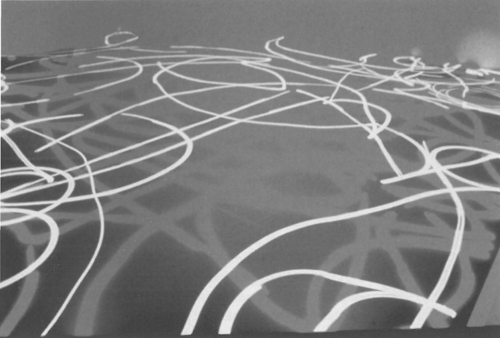In the arresting first sentence of this fascinating book, David Walker makes the point that one of the more remarkable features of Australia's history is the periodic discovery of our proximity to Asia. One such period of discovery was the decade following the mid 1980s. Led by prime ministerial visions of first, enmeshment and then engagement, Australians were encouraged to cast off a long standing reticence to recognise the realities of their geography and embrace their AsiaPacific destiny. As Pauline Hanson's rise to prominence was to underscore, not all Australians were enthusiastic about this enterprise. But to many, the message was a welcome and necessary one for a country still uncertain of its place in a complex and frequently puzzling environment.
There was often a somewhat irritating, even occasionally depressing, dimension to the debate that swirled around the Hawke and Keating governments' Asia agenda. As their policies gained momentum, the public discourse frequently seemed utterly uninformed by Australia's previous experience of Asia. It was if Asia was being revealed to us for the first time. That previous governments had pursued policies of active engagement with many of the countries of the region, that some Australian businesses had been well established there for decades, that academic and educational linkages were expanding and that people to people contacts were growing, among other things, was barely acknowledged. To the extent that the historical record failed to inform the national conversation we were conducting about Australia's future role and place in Asia it was manifestly impoverished. This was a perverse form of national amnesia, for as Walker's study reminds us, the history of Australian contacts with Asia is a long one, reaching well back into the 19th century
The relationship, however, has been anything but an easy one. For most of our history, Asia has vexed Australians. But more than merely confusing, our encounters with Asia have been of considerable importance in shaping our national identity. As Walker persuasively argues in Anxious Nation, recurring national debates over issues such as our multicultural future, inland settlement patterns, the ultimate size of our population and even the legitimacy of European occupation, have often been bound up and shaped by our perceptions of Asia. While this fascinating theme has attracted others, Walker brings a fresh and thoroughly engrossing attention to it. His book covers some of the same ground as Alison Broinowski's excellent Yellow Lady, but anyone with an interest in Australia's historical relations with its neighbours will be compelled to read both.
Taking up the story from the mid 19th century, Walker is less interested in the persistently diffident nature of official colonial and post federation governmental policy towards Asia, than with the impact of perceptions and the responses they evoked over much of the next one hundred years. This is the story of the complicated impact that Asia's ideologies, philosophies, and ambitions (real and imagined) has had on the Australian consciousness. The canvas is a rich one. While the image of Asia posing an enduring menace to Australians' long term custody of their continent is a familiar one and is wonderfully evoked throughout this book, the image is also too bland and simple. Fear there was, but wrapped in periodic apprehensions of invasion were more complex renderings of Asia: a place of mysticism, eroticism and exoticism, of contemplative and engaging oriental philosophies, of encounters for the adventurous traveller, of trade opportunities and of the new and dynamic epicentre of global influence.
Perhaps not surprisingly, from this richer more textured account of Asia in the Australian consciousness, it emerges that Asia has not always been a place to scorn and/ or fear. In the later part of the 19th century, for example, and well before things turned sour, Japan was much admired in influential Australian opinion and regarded as a country with which we might have a prosperous future. The outcome of the 1904-05 Russo-Japanese war was an important factor in reversing this optimism, but even then, there was still some respectable, audible and at times influential opinion prepared to keep a more open mind about Asia.
Reading's Walker's account of Australia's Eurocentric population struggling to come to terms with the mysteries and challenges of an alien environment, one cannot help but reflect on, and be slightly depressed by, a history that exhibits numerous lost opportunities and a catalogue of failures. Thus, a hundred years after Australians were first drawn to the charm, wealth and growing significance of India, we have still to establish a long term stable and entirely constructive relationship with its people. After recognising the potential of Asian countries as valuable trading partners in the very early part of the century, it took the best part of 75years to build close commercial ties. Despite early 20th century invocations for Australians to study Asian languages, it has been a struggle to secure a resolute commitment to their inclusion on educational curricula. Numerous other examples might be offered.
Of course for each of these lamentations there are plausible, if not always agreeable explanations. But if we were to seek a holistic account, we might perhaps be inclined to agree with Robert Penn Warren's only partially accurate observation that history is all explained by geography. Certainly this seems to appeal to Walker for he argues that the awakening of Asia from the late 1880s had a powerful impact on Australia's emerging nationalism. Asia, imagined as the enemy, sharpened the national purpose, encouraged invocations of the strength, resolution and courage of the people of country Australia as a national ideal and seared a self conscious anxiety into the consciousness of a young nation. Over one hundred years later, it would be good to think that we have moved on.












